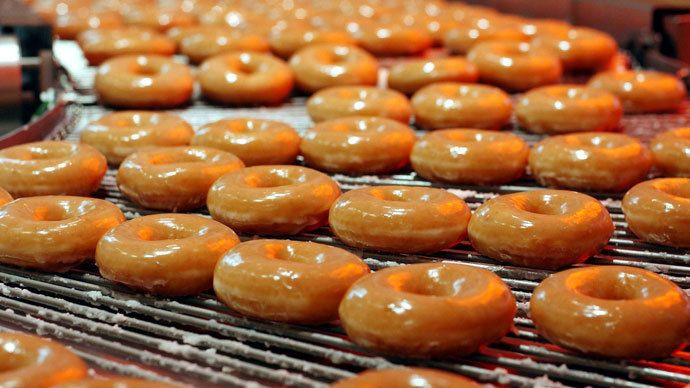Processed Vs. Unprocessed Food: Journalist David Freedman Defends Twinkies And McMuffins In The Fight Against Obesity

Defending the nutritional value of menu options from the nation’s leading fast-food restaurants including McDonald’s and Carl’s Jr. may seem like a waste of breath, but that’s exactly what journalist David H. Freedman tried to accomplish in a piece comparing the amount of calories, sugar, and fat in processed food to the amount in unprocessed food. The lengthy article published in The Atlantic this past June defended fast-food restaurants who try to limit the amount of calories, sugar, and fat in their menu items so that customers are better able to control their weight.
Freeman says he became interested in this particular subject while considering how behavioral changes can affect weight loss or gain. In the midst of dropping an extra 20 lbs., Freedman began to explore the psychological and biological science of obesity. According to Freedman, “processing in and of itself is utterly irrelevant to obesity.”
“There are a cacophony of conflicting theories and advice promoted by my fellow science journalists. "Cut down on fat, but feel free to eat lots of carbs,” Freedman told Smithsonian.com. “Calories are everything, or calories don’t matter at all. Exercise is the key rather than diet. Diet is the key rather than exercise. It’s nearly impossible to keep lost weight off. It’s all in the genes. It’s all in your gut bacteria, and on and on.”
While Freeman admits that unprocessed “whole” food is significantly more expensive compared to processed food, he also believes we are currently in the age of food technology that can effectively lower the amount of calories, sugar, and fat found in junk food. Freeman believes that applying this technology in restaurants like McDonald’s could help limit calorie intake for obese people who find trouble adhering to a strict diet regimen.
Catching the attention of many health care professionals and nutritional experts, Freedman defended McDonald’s new Egg White Delight McMuffin as processed food that is also low in calories, sugar, and fat and therefore healthy. Not only does the Egg White Delight McMuffin meet nutritional standards, but it can also satisfy the hunger of people who struggle with managing the quality of food within their diet.
“I realized this enormous misconception — the absurd dream of getting farm-fresh meals onto the plates of tens of millions of poor, obese people hooked on junk food — was standing in the way of what might be the one workable solution to attacking obesity: getting the food industry to create healthier versions of its popular foods that those people would actually eat," Freedman told Smithsonian.com. "We need lower-fat meat, in particular, beef; reduced-sugar versions of candy, cakes, and other sweets; reduced-fat substitutes for oily foods like salad dressing; whole-grain versions of floury foods like white bread.“
After going as far as to defend the dreaded Twinkie, Freedman criticizes food critics such as Michael Pollan and Mark Bittman who believe an end to obesity is as easy as a switch from processed tomatoes and apple to organic fruits and vegetables. He called the notion of every person in the country receiving organic and wholesome food a “pipe dream.” All in all, the Freedman says the next step will rely on if and when “Big Food” decide to adopt organic and unprocessed products and if the public, especially obese individuals, will accept these changes.
Published by Medicaldaily.com



























